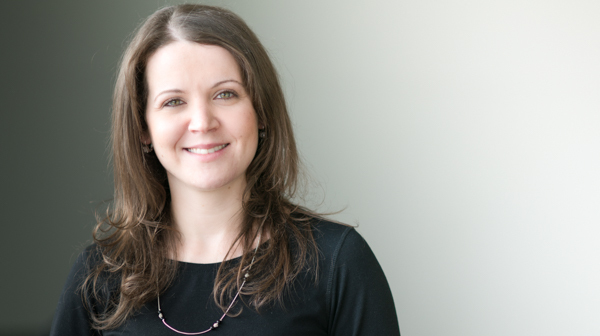

As an instructor in the University of Guelph-Humber Early Childhood Studies program, Katie Begley is teaching the next generation of early childhood professionals. She is eager to bring new ideas to the classroom that will prepare her students to enact change in their communities.
Currently, Begley is incorporating lessons about food insecurity into the ECS curriculum. She had the opportunity to dive into the topic after receiving the Study and Development Fellowship through the University of Guelph. This competitive fellowship is granted to sessional instructors to engage in study that will benefit their work and their students’ learning.
Through the fellowship, Begley completed courses from Seneca College’s Sustainable Local Food certificate program. The program looks at the practices, principles and philosophies of local food system development.
“Throughout my studies, I've been making connections to child poverty,” Begley explained. “Child poverty is something I'm personally very passionate about in terms of supporting and helping people in the community.”
Early childhood educators, Begley said, are key to influencing change in the area.
“I think we as ECEs need to continue advocating for children and families living in poverty, especially during the current times we face with the pandemic,” said Begley.
“Educators are doing amazing work supporting children in their care who live in poverty, but they face barriers and limitations with what they are able to do. We need to continue collaborating and thinking about new ways that we can help implement positive change.”
Bridging theory and practice
Begley is looking at policies and research around local food development, as well as practical ways to address the issues of food insecurity and poverty. During her fellowship, Begley connected with people in the community through volunteering at a homeless shelter and interviewing food banks.
Child poverty, Begley noted, continues to be a pressing issue throughout the country. In Canada, more than 1.35 million children and families are living in poverty.
“We know what the government is currently doing with the poverty reduction strategy in place. We know what the barriers are. We know what the rates of child poverty are,” Begley said. “What can we do about it now? What can we put into action in our daily lives?”
By supplementing what ECS students are currently learning about poverty and food insecurity with more practical insight, Begley hopes to prepare students with both the knowledge and strategies needed to directly help children and families.
“Our students will be educating our future generations,” Begley said, “so I think it’s a really important gap to fill.”
ECS Program Head Dr. Nikki Martyn is looking forward to working with Begley to incorporate new materials into the curriculum.
“Katie is a valuable member of our ECS community and is completing some very interesting work on the impact of child poverty and food insecurity," said Dr. Martyn. "The work is incredibly relevant for children and families today as we live through a pandemic with the added financial and social emotional pressures that are affecting us all.”
Dr. Martyn adds, “I’m excited about working with Katie to include the knowledge and experience she gained through the fellowship into the curriculum to support not only our students but the children and families they will be connecting with.”
Educating the next generation
After completing a Master of Education at the Ontario Institute for Studies in Education at the University of Toronto, Begley joined UofGH as an instructor in 2011. Since then, she has been committed to educating and supporting her students, as well as modeling professional behaviour.
“I take my role very seriously because I know what I do is what my students are going to do out in the field,” Begley said. “Then, what my students do in the field is what our future generations are going to do. It's so important to model what you want children to see, because they're watching us.”
One of the qualities her students most appreciate is the care and support Begley puts into her work.
“Katie is always a positive role model, a caring teacher, and a big advocate for children and child development,” said Emilia Biasi, a fourth-year ECS student. “Her passion for teaching has played a pivotal role in my educational career.”
Fourth-year ECS student Olivia Palumbo added, “I always feel comfortable, respected and confident to share my opinions and ask questions in her classes. Katie is amazing at making her students feel heard and understood.”
For Begley, listening to what students feel, think and believe is essential for effective education.
“What I've found through teaching over the last 10 years is that if you're able to hear and understand students, that's when you can truly teach them,” Begley said. “I view my role as sharing new knowledge and best practices with students. I encourage students to take that new knowledge and combine it with their perspectives and ideas.”
Throughout her time teaching at UofGH, Begley has appreciated the support of the ECS program and the passion of her students.
“The students are amazing. They love going to placement. They want to see children learning and growing, and it's clear to see that they're passionate about that,” Begley reflected.
“When you have students that are passionate and really, truly care about children, it makes my job rewarding to watch them grow and support others in our communities.”







